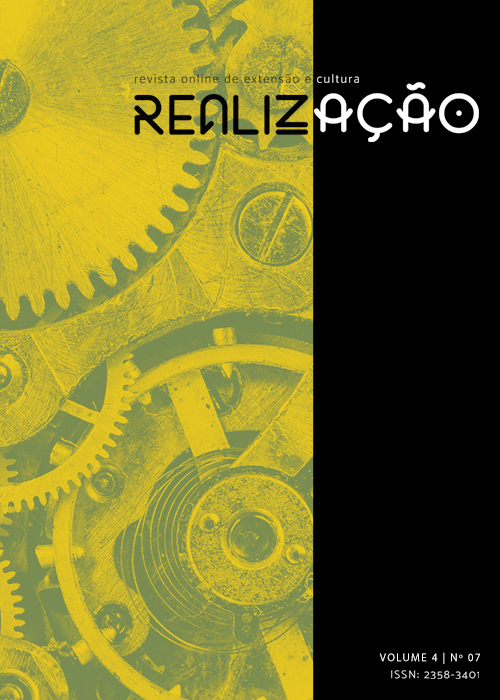Moral harassment: its impacts on harassed workers and employers in Brazil
Keywords:
Damages , Labor Laws , Hostility, Victims, CompensationAbstract
Moral harassment has been gaining prominence over the years. Its signs date back to the dawn of humanity and have evolved over time. With the Industrial Revolution, it began to dissipate. Nowadays, its practice, although not prohibited by any federal law, has its restrictions, as shown by the study that was carried out through the Civil Code, Consolidation of Labor Laws, Federal Constitution of 1988, and also the Penal Code, among other bills. This article demonstrates that the practice of moral harassment has impacts on organizations, such as compensation for moral damages, the image of the organization exposed in the media, and health problems for the victim, among others. Based on bibliographic research, this article will address the most common type of moral harassment, which is vertical downward harassment, and ways to repair the damages caused by its practices to the victims.
Downloads
References
BRASIL. Código Civil (2002). Código Civil Brasileiro e legislação correlata-2. ed. Brasília, DF. Senado, 2008.
BRASIL. Constituição (1988). Constituição da República Federativa do Brasil. Brasília, DF, Senado, 1998.
CASTRO, C. C. de. Assédio Moral nas relações de emprego. São Paulo. LTr ,2012.
FERREIRA, H. D. B. Assédio moral nas relações de trabalho. 2° ed. Campinas/SP. Russell Editores ,2010.
FIORELLI, J. O; FIORELLI, M.; JUNIOR, M. J. O. Malhadas.Assédio Moral. Uma visão Multidisciplinar. São paulo. LTr ,2007.
FREIRE, P. Assédio moral e saúde mental do trabalhador. 2008.
FREITAS, M. E; HELOANI, R; BARRETO, M.Assédio Moral No Trabalho. São Paulo. Cengage Lerning. 2009.
JESUS, M. D. Projeto de Lei N °4742/2001. [25/03/2001]. 2001
KAUARK, F. D. S; MANHÃES, F.; MEDEIROS, C. Metodologia da Pesquisa: Um guia prático. Via Litterarum. Itabuna/BA.2010
MANUS, P.P. T. Direito do Trabalho.10° ed. Atlas. São Paulo,2006.
MORESI, E. Metodologia de Pesquisa. Universidade Católica de Brasília. Brasília. 2007.
NASCIMENTO, A. R. LUNA, R. O.. O Diabo (nem Sempre) veste Prada: O assédio moral no trabalho e as representações do bullying no ambiente laboral no cinema comercial. In: organização CONPEDI/UFSC; Marcelo Campos Galuppo; André Karam Trindade; Luiz Carlos Cancellier de Olivo. (Org.). D598 Direito, arte e literatura [Recurso eletrônico on-line]. 1eded.Florianópolis: CONPEDI, 2014, v., p. 246-264. 2014
PARREIRA, A. Assédio Moral, Um manual de sobrevivência. 2 ° ed. Russell .Campinas/SP, 2010.
PEDUZZI , M. C. I .Assédio Moral.Rev TST, Brasilia , v.73,n°2. abr/jun 2007.
PRODANOV, C. C; FREITAS, E.C D. Metodologia do Trabalho Cientifico: Métodos e Técnicas da Pesquisa e do Trabalho Acadêmico. 2 ° ed. Novo Hamburgo /RS.2013.
SENADO FEDERAL. Projeto de Lei N° 6.757/2010. (Apensados: Projetos de Lei n°2.369/2003,2.593/2003,4.593/2009,6.625/2009,7.146/2010,3.720/2012,6.764/2013,3.429/2015 e 4.150/2015). 2017.
ZANETTI, R. Assédio Moral no Trabalho. E-book. 2015
Downloads
Published
How to Cite
Issue
Section
License
Copyright (c) 2017 Arthur Ramos do Nascimento, José Cordeiro Neto

This work is licensed under a Creative Commons Attribution-NonCommercial-ShareAlike 4.0 International License.
Autores que publicam nesta revista aceitam as normas de publicação, bem como, concordam com os seguintes termos:
(a) O Conselho Editorial se reserva ao direito de efetuar, nos originais, alterações da Língua portuguesa para se manter o padrão culto da língua, respeitando, porém, o estilo dos autores.
(b) Autores mantêm os direitos autorais e concedem à revista o direito de primeira publicação, com o trabalho simultaneamente licenciado sob a Creative Commons Atribuição-NãoComercial-CompartilhaIgual 4.0 Internacional que permite: Compartilhar — copiar e redistribuir o material em qualquer suporte ou formato e Adaptar — remixar, transformar, e criar a partir do material. A Creative Commons Atribuição-NãoComercial-CompartilhaIgual 4.0 Internacional considera os termos seguintes:
- Atribuição — Você deve dar o crédito apropriado, prover um link para a licença e indicar se mudanças foram feitas. Você deve fazê-lo em qualquer circunstância razoável, mas de nenhuma maneira que sugira que o licenciante apoia você ou o seu uso.
- NãoComercial — Você não pode usar o material para fins comerciais.
- CompartilhaIgual — Se você remixar, transformar, ou criar a partir do material, tem de distribuir as suas contribuições sob a mesma licença que o original.
- Sem restrições adicionais — Você não pode aplicar termos jurídicos ou medidas de caráter tecnológico que restrinjam legalmente outros de fazerem algo que a licença permita.


